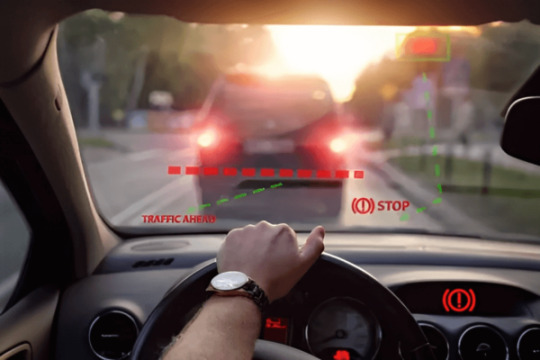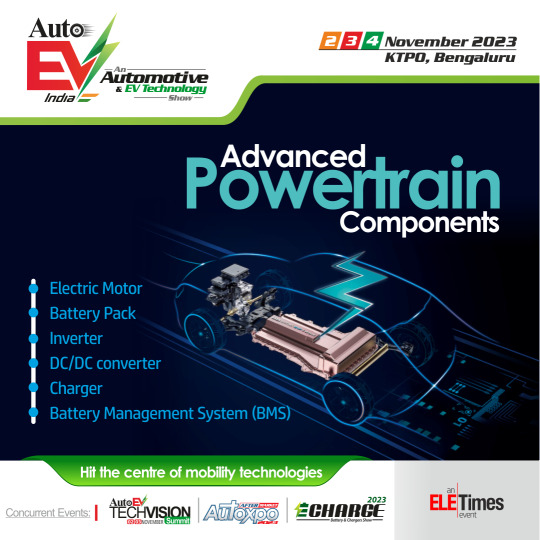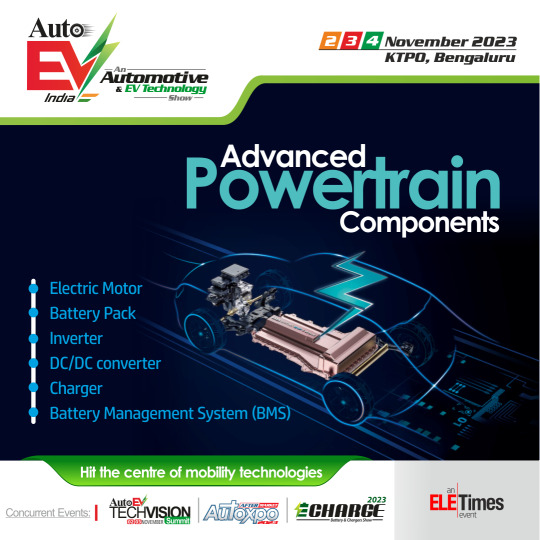#BatteryManagementSystem
Explore tagged Tumblr posts
Text
Lithion Power SS16_200 Reliable BMS for Long-Lasting Lithium Packs
In high-capacity energy storage systems, reliability is everything. Whether you're powering a solar home, running a 48V inverter, or building a mobile backup setup, your lithium battery needs a dependable Battery Management System (BMS) to stay safe and last long. That’s where the Lithion Power SS16_200 shines—a Semi Smart 200A BMS tailored for 16S (48V) lithium battery packs.
🔋 What Is the SS16_200?
The SS16_200 is a Semi Smart BMS built to manage large lithium batteries made up of 16 cells in series—typically 48V packs based on LiFePO₄ or NMC chemistry. It offers:
🔹 200A continuous current support
🔹 Essential protections (over-voltage, under-voltage, overcurrent, thermal, short-circuit)
🔹 Cell balancing for longer battery life
🔹 Rugged construction for use in real-world power systems
This BMS is designed to handle high loads while keeping your system protected 24/7.
⚙️ Key Specifications
Feature
Details
Configuration
16S (48V Nominal)
Max Continuous Current
200A
Chemistry
LiFePO₄ / NMC
Smart Type
Semi Smart
Protections
OVP, UVP, SCP, OCP, OTP
Applications
Inverter systems, solar banks, backup storage
🛠️ Built for Demanding Applications
The SS16_200 is not just another BMS—it’s crafted for high-power applications, including:
🏠 Home inverters and solar backup systems
🏭 Industrial UPS systems
⚡ Energy storage for off-grid cabins
🚛 Mobile power systems and RVs
With 200A output capacity, it can handle high surge loads from inverters and heavy-duty appliances without tripping or overheating.
🧠 Semi Smart, Fully Efficient
Being a Semi Smart BMS, the SS16_200 offers intelligent features such as:
✅ Auto cut-off and recovery during fault conditions
✅ Internal cell balancing for uniform voltage distribution
✅ LED/fault signal indicators for diagnostics
✅ Seamless integration with inverter controllers
This keeps the system both simple and effective, minimizing user intervention while maximizing system safety.
💡 Why Battery Life Depends on Good BMS
A lithium battery pack is only as good as its protection system. Poorly managed packs:
Age faster due to cell imbalance
Risk overcharging or deep discharging
Overheat or short circuit under load
With SS16_200, you get smart protections that directly contribute to longer battery life, better performance, and lower maintenance—making it a solid investment for serious energy users.
🇮🇳 Made in India, Trusted Globally
Designed and manufactured by Lithion Power, the SS16_200 is proudly Made in India using global standards in quality and reliability. It’s ideal for both OEMs and DIY system integrators who want a cost-effective, high-performance BMS for large packs.
✅ Highlights at a Glance
🔋 200A support for high-current lithium systems
⚡ Semi Smart logic with essential protections
🛡️ Improved safety, stability, and battery lifespan
🏠 Perfect for solar, inverter, UPS & energy storage use
🇮🇳 Backed by Lithion Power's trusted engineering
🔚 Final Words
If you're building a 48V lithium battery pack and need a no-compromise protection system, the Lithion Power SS16_200 is the answer. It balances affordability with advanced safety, offering you a high-current BMS you can trust for years to come.
Empower your lithium system with confidence—choose SS16_200.

#bms#battery management system#lithion#lithium battery#lithion power#batterymanagementsystem#electricvehicle#ev#lithionpower
0 notes
Text
Battery Management System Market Drivers Fueling Global Growth and Technological Advancements in Energy Storage
The battery management system market is experiencing a transformative shift, driven by multiple key factors that are reshaping how energy is stored, distributed, and utilized across various sectors. As industries worldwide pivot toward cleaner, more efficient energy solutions, battery management systems (BMS) have become essential for optimizing battery performance, extending lifespan, and ensuring safety. The growing reliance on battery-powered technologies is pushing the BMS market into a phase of rapid innovation and expansion.

1. Rising Adoption of Electric Vehicles (EVs) One of the most significant drivers of the battery management system market is the surge in electric vehicle adoption. Governments across the globe are implementing stringent emission regulations and offering subsidies to promote EVs as a cleaner alternative to traditional combustion engines. As EVs rely heavily on lithium-ion batteries, an efficient BMS is critical for maintaining battery health, balancing cell voltage, and preventing overcharging or overheating. The need for advanced BMS in EVs is fostering significant demand and innovation in the sector.
2. Expansion of Renewable Energy Storage Systems With the shift toward renewable energy sources such as solar and wind, energy storage has become crucial to manage supply fluctuations and ensure reliable power. Battery energy storage systems (BESS) are now widely used to store excess energy for later use, especially in smart grids. A robust battery management system ensures these storage solutions operate efficiently and safely. The integration of BMS with renewable energy systems is vital for grid stability and is fueling market growth significantly.
3. Growth in Consumer Electronics and Portable Devices The proliferation of smartphones, laptops, wearables, and other portable devices continues to be a major driver for the BMS market. These devices rely on rechargeable batteries that require efficient monitoring and control. Battery management systems in consumer electronics must be compact, energy-efficient, and capable of maximizing battery life. With the growing demand for more powerful and long-lasting devices, manufacturers are increasingly investing in advanced BMS technologies.
4. Advancements in Battery Technologies Innovations in battery chemistries, such as solid-state batteries, lithium-sulfur, and sodium-ion, are creating new opportunities for the battery management system market. Each new battery type presents unique challenges in terms of charging, discharging, and thermal management. BMS solutions must evolve accordingly to support these innovations, ensuring safety and optimal performance. As battery technologies become more complex, the role of BMS becomes even more critical, driving further development and demand.
5. Integration with Smart Grids and IoT Applications The rise of smart grids and the Internet of Things (IoT) is another influential factor driving the battery management system market. Smart grids rely on decentralized energy sources and demand real-time monitoring and control of energy flow. BMS plays a vital role in ensuring energy storage systems work seamlessly within these networks. Similarly, IoT-enabled devices across industries require sophisticated battery monitoring for remote management and predictive maintenance, pushing the boundaries of BMS capabilities.
6. Increasing Focus on Safety and Regulatory Compliance As battery usage increases across applications, so do concerns about safety and regulatory standards. Incidents of battery fires and failures have highlighted the importance of having reliable BMS to detect faults early and shut down malfunctioning cells. Regulatory bodies in many countries are enforcing stringent safety and performance standards for battery systems, which in turn necessitate high-quality BMS solutions. This regulatory push is a major driver influencing product design and adoption across industries.
7. Industrial Automation and Electrification Trends Industries are increasingly moving toward automation and electrification, particularly in manufacturing, logistics, and construction. Electric forklifts, AGVs (Automated Guided Vehicles), and industrial robots all depend on battery power and efficient energy management. These applications require BMS solutions tailored to heavy-duty use and extended cycles, thus widening the scope and scale of BMS implementation in the industrial sector.
Conclusion The battery management system market is poised for robust growth, underpinned by a dynamic blend of technological, environmental, and economic drivers. From powering the next generation of electric vehicles to enabling stable renewable energy integration and ensuring the reliability of smart electronics, BMS technologies are at the heart of the energy transition. As innovation continues and global energy demands evolve, the need for advanced battery management solutions will only become more pronounced, creating new opportunities for stakeholders across the value chain.
0 notes
Text
In this episode, we explore the Semco SI-Y BMST 1-6S (60A/120A) – a cutting-edge Battery Management System (BMS) Tester designed for lithium battery protection board testing. Learn how this high-precision equipment enhances quality control, R&D testing, and production efficiency in the battery industry.
Connect with Us: 📞 Call: +91-8920681227 📧 Email: [email protected] 🌐 Visit: www.semcoinfratech.com
#BatteryManagementSystem#BMSTester#LithiumBatteryTesting#SemcoInfratech#AdvancedBMS#BatteryProtection#QualityControl#RDTesting#ProductionEfficiency#BatteryTechnology#RenewableEnergy#ElectricVehicles#CleanEnergy#EnergyStorage
0 notes
Text
#LG Energy Solution#SoC#BatteryManagementSystem#nextgen#EVInnovation#electricvehiclesnews#evtimes#autoevtimes#evbusines
0 notes
Text
Electric Vehicle Battery Market Solid Analyzed Segmentation, Demand, and Share Estimation by 2030

The qualitative report published by Exactitude Consultancy research on the “Electric Vehicle Battery Market offers an in-depth examination of the current trends, latest expansions, conditions, market size, various drivers, limitations, and key players along with their profile details. The Electric Vehicle Battery market report offers the historical data for 2018 to 2023 and also makes available the forecast data from the year 2024 to 2030 which is based on revenue. With the help of all this information research report helps the Market contributors to expand their market positions. With the benefit of all these explanations, this market research report recommends a business strategy for present market participants to strengthen their role in the market. This report analyzes the impact of the Covid 19 pandemic on the Electric Vehicle Battery Market from a Global and Regional perspective.
The global electric vehicle battery market is expected to grow at 21% CAGR from 2024 to 2030. It is expected to reach above USD 95 billion by 2030 from USD 17 billion in 2023.
For The Full Report Click here:
https://exactitudeconsultancy.com/reports/1879/electric-vehicle-battery-market/
#ElectricVehicleBattery#EVBattery#BatteryTechnology#BatteryMarket#ElectricVehicle#EVMarket#LithiumIonBattery#BatteryInnovation#BatterySupplyChain#BatteryManufacturing#EVIndustry#CleanEnergy#RenewableEnergy#SustainableMobility#FutureOfMobility#GreenTechnology#ElectricCars#EVCharging#BatteryManagementSystem
0 notes
Text
🔥Battery Management Systems - Welding for Unbreakable Power! ⚡💪 Don't miss this game-changer that'll make your battery last longer than ever before! Say goodbye to tedious maintenance. 🔧🔋 #BatteryManagementSystem #Innovation #UnbreakablePower
#lithiumbattery#lithiumbatterypack#lithiumbatteryfactory#lifepo4lithiumbattery#daxingpower#newenergy#batterymanagementsystem#soldering#powersupply
0 notes
Text

Introducing our NEW 200AH Slim Lithium Battery 12v. #BSLBATT#LiFePO4 Battery is supplied fully protected by a sophisticated specially designed lithium battery management system (BMS) that constantly monitors every cell to ensure the battery is always optimized for the best performance and life.
Slim #Lithium Battery 12v li ion battery pack is safer, lighter, and more powerful with long service and shelf life compared to all traditional lead-acid batteries.
No changing of systems, equipment, or extensive re-wiring is required. You simply pull your old heavy batteries out (if your back allows it) and put the new lightweight LiFePO4 battery in. It's as easy as that.
This 200AH Slim Lithium Battery 12v is the perfect drop-in upgrade for your existing old and heavy batteries, Invest in this sealed, maintenance-free battery for your #energy storage off-grid system today!
#SlimLithiumBattery#LiFePO4Battery#BatteryManagementSystem#LongServiceLife#LightweightBattery#DropInUpgrade#EnergyStorage#OffGridSystem#SealedBattery#MaintenanceFree#200AHSlimLithiumBattery12v#SlimLithiumBattery12v
0 notes
Text
Bliss Flow Systems series is a self contained electro hydraulic actuator suitable for linear and rotary applications. It can be customized to suit a given application. EHF series of actuator has an integral electronic control module which drives the electrical motor, pump and solenoid for operations. control module which drives the electrical motor, pump and solenoid for operations. With the combination of modern electronics and power of hydraulics, Bliss Flow Systems series is super efficient in providing precise control for high cyclic demand or ESD application.
1 note
·
View note
Text
ADAS Testing and Validation: Ensuring Safe and Reliable Advanced Driver Assistance Systems
Introduction
The car industry has undergone a transformation thanks to Advanced Driver Assistance Systems (ADAS), bringing us closer to a time when driving is entirely automated. These innovative technologies increase vehicle security, increase driving comfort, and lessen the possibility of collisions. Deploying ADAS, however, entails a great deal of responsibility because any flaws or failures in these systems could have negative effects.
In order to guarantee the secure and dependable operation of these cutting-edge technologies, this blog explores the critical facets of ADAS testing and validation.
1. The Value of ADAS Testing and Validation

Testing and validation for ADAS have the following objectives:
Safety Assurance: The main goal is to ensure that ADAS features operate correctly and safely under various circumstances. This reduces the possibility of mishaps brought on by system errors or misunderstandings.
Performance Evaluation: ADAS assists in determining the accuracy and dependability of ADAS features in a variety of driving circumstances, including city streets, highways, and inclement weather.
Regulatory Compliance: Validation is a necessary step for legal compliance because ADAS must adhere to strict safety standards established by regulatory agencies.
User Experience: To guarantee a seamless and simple experience for drivers, validation also includes assessing the usability and human-machine interface components of ADAS.
2. ADAS Testing Types
Hardware-in-the-Loop (HIL) testing connects actual ADAS hardware (such as sensors and ECUs) to a computerized driving simulation environment. This method prevents potential dangers from being placed on real automobiles or drivers while enabling controlled and repeatable testing of ADAS algorithms and features.
Software-in-the-Loop (SIL) ADAS: Using a simulated environment instead of actual hardware, SIL testing entails assessing ADAS software algorithms. It enables early-stage ADAS software validation and debugging, saving time and resources throughout the development process.
Vehicle Testing: To evaluate ADAS performance under various driving circumstances, real-world vehicle testing is crucial. Testing on public roadways (with the required safety procedures), and designated proving grounds are examples of this.
Simulation Testing: Through virtual simulations, ADAS systems can be tested in a variety of situations, including risky or uncommon incidents that could be difficult to simulate in actual testing. Additionally, simulations offer a quick and inexpensive way to validate ADAS systems.
Data-Driven ADAS: ADAS makes extensive use of data collected by cameras and sensors. Data-driven testing involves validating and optimizing ADAS algorithms utilizing recorded data from real-world driving scenarios.
3. ADAS Validation Challenges
The testing and validation phase of ADAS technology faces a number of difficulties notwithstanding their benefits:
Edge Cases: ADAS must be tested against unusual and extreme events that are not typically seen in real-world driving. To guarantee the system’s reliability and resilience, these “edge cases” are essential.
Sensor Calibration: Accurate data gathering depends on precise sensor calibration. For ADAS validation to be successful, sensors must be calibrated accurately to prevent false positives or negatives.
Interoperability: A variety of ADAS elements from various providers are combined in many automobiles. For these systems to integrate seamlessly and avoid conflicts, interoperability must be maintained.
Human Factor: ADAS technology interacts with human drivers through the human factor. Enhancing user acceptance and safety through ADAS validation requires an understanding of and attention to the human component.
Continuous Updates: To respond to new driving situations and arising difficulties, ADAS systems need to be updated on a regular basis. To maintain optimal performance, it is vital to make sure that validation and updates are ongoing.

4. Regulatory and Testing Standards for ADAS
The testing and validation of ADAS are governed by a number of international standards and laws, which the car industry complies with. Among the fundamental standards are:
ISO 26262: Throughout the development lifecycle, this standard establishes the functional safety criteria for automotive systems, including ADAS.
Euro NCAP: The European New Car Assessment Programme (Euro NCAP) evaluates the safety of vehicles and conducts tests to determine how well ADAS systems function.
NHTSA Guidelines: In the United States, the National Highway Traffic Safety Administration (NHTSA) offers recommendations for ADAS validation and testing.
SAE J3016: This standard provides a framework for categorizing ADAS and establishes levels of driving automation from Level 0 (no automation) to Level 5 (full automation).
5. ADAS Testing and Validation Future Trends
The testing and validation procedures will change as ADAS technologies advance. Future trends could include:
Testing of artificial intelligence (AI): As AI is incorporated into ADAS systems, testing techniques utilizing AI-driven simulations and adversarial testing will proliferate.
Real-world Data Collection: To enhance ADAS performance and successfully test systems, OEMs, and developers will increasingly concentrate on obtaining real-world driving data.
Cyber security Testing: Testing for cyber security will be essential as ADAS systems become increasingly interconnected. This is a crucial step in the testing and validation process.
Remote Over-the-Air (OTA) Updates: OTA updates will permit ongoing ADAS system updates and improvements, facilitating more effective testing and validation in actual driving situations.

Conclusion
A major improvement in vehicle automation and safety has been made by ADAS technologies. To ensure their safe and dependable operation, stringent ADAS Testing and validation procedures must be used during their integration and implementation. Automotive manufacturers and developers can recognize and fix potential concerns through a combination of HIL testing, SIL testing, vehicle testing, simulations, and data-driven approaches, ultimately resulting in safer roads and a more effective and enjoyable driving experience. The future of ADAS contains intriguing possibilities as technology develops, opening the door for the ongoing creation and incorporation of advanced driver-aid systems in our cars.
#ADAS Testing#vcu#ecu#automobile#automotive#electrical#electronics#electriccar#ev#bike#bms#batterymanagementsystem#tesla#vehiclecontrolunit
0 notes
Text
Just 3 Days to Go! - Auto EV India Expo 2023
Automotive industry is expected to reach $300 Bn by 2026. Be a part of this revolution. Visit, Network and Discover new opportunities at @autoevindia 2023, from 2 – 4 November 2023, KTPO Convention Centre, Whitefield, Bengaluru and benefit your business.
Free Registration: https://www.autoevexpo.com/

#AutoEVIndiaBengaluru#AutoEVIndia#automotive#automotiveindustry#automotiveelectronics#automotiveengineering#evtechnology#electricvehicles#electricvehicletechnology#evcharging#technology#batterytechnology#batterymanagementsystems#powertrain#semiconductors#automotiveshow#automotiveexhibition#automotiveshowindia#automotiveexhibitionindia#automotivetechnology#automotivetechnologyshow#automotivetechnologyexhibition
0 notes
Text
Lithion Power 3S-10A PCM 11.1V Battery Safety Simplified

In today’s compact and portable energy solutions, safety and reliability are critical. Whether you're building a battery pack for a power bank, small e-gadget, or portable lighting system, having a smart protection circuit is non-negotiable. That’s why Lithion Power's 3S-10A PCM is an essential pick for 3-cell lithium-ion battery packs.
🔋 What Is the 3S-10A PCM?
The Lithion Power 3S-10A PCM is a Protection Circuit Module designed specifically for 3S lithium battery packs, typically rated at 11.1V (Li-ion) or 9.6V (LiFePO₄). It acts as the battery’s security guard — preventing damage from overcharging, over-discharging, and short circuits.
⚙️ Key Features
Supports: 3S (3-cell) Li-ion or LiFePO₄ batteries
Rated Current: 10A continuous
Peak Load Handling: Up to 15A (brief bursts)
Protection Modes:
Overcharge Protection
Over-discharge Protection
Overcurrent Protection
Short Circuit Cutoff
Form Factor: Ultra-compact and lightweight – ideal for portable builds
📦 Where You Can Use It
The 3S-10A PCM is perfect for a wide range of low- to mid-power applications, such as:
🔌 Power banks
🔦 Portable lighting systems
🛠 DIY electronics and robotics
🚴 E-cycle accessories
🔋 Backup battery packs for embedded systems
If your project needs a compact 11.1V lithium battery and reliable protection, this PCM has you covered.
🛡️ Built-In Safety = Longer Battery Life
This module not only prevents electrical damage but also helps prolong battery lifespan by ensuring cells stay within safe voltage and current ranges. Whether you're charging or discharging, the 3S-10A PCM maintains control—silently working to keep your pack healthy and secure.
💡 Why Choose Lithion Power?
✅ Made in India, trusted globally
✅ Quality-tested for OEM and DIY use
✅ Simple integration into new or existing packs
✅ Backed by reliable customer support and specs
🧩 Final Thoughts
The Lithion Power 3S-10A PCM is the ideal choice for makers, hobbyists, and product developers looking to add safe, reliable power protection to their 11.1V battery packs. It's compact, cost-effective, and built to perform.
#lithion power#lithium battery#batterymanagementsystem#battery management system#bms#lithion#electricvehicle#ev#lithionpower
0 notes
Text
Auto EV India 2.O: Travel into the Future of Mobility
Experience the Disruptive Automotive and EV Technologies Live. Second Edition of Auto EV India 2023 is going to take you to the next level of Mobility Technologies. Read More: https://www.eletimes.com/auto-ev-india-2-0-travel-into-the-future-of-mobility
Auto EV India Bengaluru 2023: 2-4 November 2023, KTPO, Whitefield, Bengaluru Register Now: https://www.autoevexpo.com/
Some Important Links of Our Website to give you more Insights: Visitor Registration: www.faith-x.live/autoevindia/visitor.aspx Auto EV TECH-VISION Summit 2023: https://www.autoevexpo.com/conference/ Conference Ticket Options: https://www.autoevexpo.com/book-a-ticket/ Exhibitor Profile: www.autoevexpo.com/exhibitor-profile/ Key Exhibitors 2023: www.autoevexpo.com/key-exhibitors/ Visitor Profile: www.autoevexpo.com/visitor-profile/ Why Visit: www.autoevexpo.com/why-visit/ About the Venue: www.autoevexpo.com/about-the-venue/
#AutoEVIndiaBengaluru#AutoEVIndia#automotive#automotiveindustry#automotiveelectronics#automotiveengineering#evtechnology#electricvehicles#electricvehicletechnology#evcharging#technology#batterytechnology#batterymanagementsystems#powertrain#semiconductors#automotiveshow#automotiveexhibition#automotiveshowindia#automotiveexhibitionindia#automotivetechnology#automotivetechnologyshow#automotivetechnologyexhibition
0 notes
Text
Upgrade your battery testing process with the Semco SI-Y BMST 1-6S (60A/120A). This high-precision Battery Management System Tester is engineered for accurate assessment of lithium battery protection boards, optimizing quality control, R&D, and production workflows.
Contact Us:
Phone: +91-8920681227 Email: [email protected] Website: www.semcoinfratech.com
#BatteryManagementSystem#BMSTester#LithiumBattery#SemcoInfratech#BatteryTesting#QualityControl#R&D#ProductionEfficiency#BatteryTech#Innovation
0 notes
Text
#BatteryManagementSystem#electricvehicles#renewableenergy#energyefficient#technologies#battery#automotive#energy#automation#electricvehiclesnews#evtimes#autoevtimes#evbusines
0 notes
Text
Advanced EV Powertrain Technologies requires advanced Powertrain Components

There is no doubt that Electric Vehicle Powertrain is going to grow in demand and would be used extensively so would increase the demand for Powertrain Components.
Electric Motor Battery Pack Inverter DC/DC converter Charger Battery Management System (BMS)
Find Out futuristic Powertrain Technologies and advanced Powertrain Components from world's leading manufacturers and suppliers @ Auto EV India 2023- South Asia's exclusive international exhibition on advanced Automotive & EV Technologies, from 2 - 4 November 2023 at KTPO Convention Centre, Whitefield, Bengaluru.
Visitor Registrations are open now. Register Online Now and get your online Exhibitor Badge immediately, for your hassle free entry. Visitor Registration is Free!
Register Now: https://www.faith-x.live/autoevindia/visitor.aspx
Some Important Links of Our Website to give you more Insights:
Register Online: www.faith-x.live/autoevindia/visitor.aspx Exhibitor Profile: www.autoevexpo.com/exhibitor-profile/ Key Exhibitors 2023: www.autoevexpo.com/key-exhibitors/ Visitor Profile: www.autoevexpo.com/visitor-profile/ Why Visit: www.autoevexpo.com/why-visit/ About the Venue: www.autoevexpo.com/about-the-venue/
#automotive#automotiveindustry#automotiveelectronics#automotiveengineering#evtechnology#electricvehicles#electricvehicletechnology#evcharging#technology#batterytechnology#batterymanagementsystems#powertrain#semiconductors
1 note
·
View note
Text
Advanced EV Powertrain Technologies requires advanced Powertrain Components

There is no doubt that Electric Vehicle Powertrain is going to grow in demand and would be used extensively so would increase the demand for Powertrain Components.
Electric Motor Battery Pack Inverter DC/DC converter Charger Battery Management System (BMS)
Find Out futuristic Powertrain Technologies and advanced Powertrain Components from world's leading manufacturers and suppliers @ Auto EV India 2023- South Asia's exclusive international exhibition on advanced Automotive & EV Technologies, from 2 - 4 November 2023 at KTPO Convention Centre, Whitefield, Bengaluru.
Visitor Registrations are open now. Register Online Now and get your online Exhibitor Badge immediately, for your hassle free entry. Visitor Registration is Free!
Register Now: https://www.faith-x.live/autoevindia/visitor.aspx
Some Important Links of Our Website to give you more Insights:
Register Online: www.faith-x.live/autoevindia/visitor.aspx Exhibitor Profile: www.autoevexpo.com/exhibitor-profile/ Key Exhibitors 2023: www.autoevexpo.com/key-exhibitors/ Visitor Profile: www.autoevexpo.com/visitor-profile/ Why Visit: www.autoevexpo.com/why-visit/ About the Venue: www.autoevexpo.com/about-the-venue/
#automotive#automotiveindustry#automotiveelectronics#automotiveengineering#evtechnology#electricvehicles#electricvehicletechnology#evcharging#technology#batterytechnology#batterymanagementsystems#powertrain#semiconductors
1 note
·
View note